300 Years of J.S. Bach in Leipzig
Concert recommendations for the feast of Epiphany
Epiphany – sometimes also called Three Kings – is one of the most ancient church feasts. On this day, not only do children go from house to house as so-called “star singers”, it is also a popular date for concerts. Below is a suggestion for a Bach concert program to celebrate Epiphany:
After the simple yet solemn introit from the Carolingian period (“Ecce advenit”) and the Gospel reading for this feast day, the concert program begins with the Epiphany cantata BWV 65 “Sie werden aus Saba alle kommen” (They all shall that day come out from Sheba).
The block of three chorale preludes from two different collections (Schübler Chorales and Part 3 of the Clavierübung) takes us from Christmas to the role of Mary as the Savior’s mother and subsequently to Jesus’s baptism in the river Jordan, an event celebrated at the next feast after Epiphany. Each chorale prelude is complemented by the corresponding chorale, thus integrating the choir into the program.
Cantata for Epiphany BWV 65
Johann Sebastian Bach
Carus 31.065
A passage from Isaiah 60 provides the epistle text that in Bach’s day was used in the Lutheran liturgy to celebrate Epiphany along with the Gospel pericope from Matthew 2 (presented at the beginning of the concert). This leads to the final piece on the program, namely the cantata BWV 123 “Liebster Immanuel, Herzog der Frommen” (Dearest Immanuel, Lord of the Faithful). The two Bach cantatas can be easily combined due to their almost identical scoring (except for the horns, which are used only in BWV 65).
Bach’s inaugural year in Leipzig is here represented by the first of the two cantatas (BWV 65, “Sie werden aus Saba alle kommen”). It forms the nucleus of the concert and reveals the musical genius that the Leipzig authorities had chosen as the new cantor of St. Thomas’s, even if Bach was not recognized as such during his lifetime.
Cantata for Epiphany BWV 123
Johann Sebastian Bach
Carus 31.123
| Greg. Chorale | Introit for Epiphany “Ecce advenit” (e.g. from In hymnis et canticis. Choral collection Gregorian chant, Carus 19.007, p. 48) |
| Bible reading | Matthew 2:2-12 |
| J. S. Bach | Cantata “Sie werden aus Saba alle kommen” BWV 65 (Carus 31.065), composed for 6 January 1724 Scoring: soli TB, choir SATB, 2 rec, 2 obca, 2 cor, 2 vl, va, bc |
| J. S. Bach | Organ solo: from the Schübler Chorales – chorale prelude “Kommst Du nun Jesus vom Himmel herunter” BWV 650 (printed in 1747/48, based on BWV 137/2, composed for 19 August 1725)
4-part chorale “Lobe den Herren, den mächtigen König” BWV 137/5 (Bach-Choräle, Carus 2.098, p. 59, can be accompanied by the cantata instrumentalists. The two horns can play the first two trumpet parts) Organ solo: from the Schübler Chorales – chorale prelude “Meine Seel erhebt den Herren” BWV 648 (printed in 1747/48, based on BWV 10/5, composed for 2 July 1724) |
| Greg. Chorale | Carolingian-Roman chorale with three double verses from the Magnificat (verse 1 and the doxology) – e.g. In hymnis et canticis. Choral collection Gregorian chant, Carus 19.007, pp. 21-22, although the verses must be adapted to the IX psalm tone, the tonus peregrinus, which Bach uses as cantus firmus in BWV 10 / BWV 648). |
| J. S. Bach | Organ solo: from Clavierübung III – chorale prelude “Christ, unser Herr, zum Jordan kam” BWV 684 (printed in 1739)
4-part chorale, the concluding chorale “Christ, unser Herr, zum Jordan kam” from BWV 7/7 (Carus 31.007 or Carus 4.023) with the text of the first verse |
| Bible reading | Isaiah 60: 1-6 |
| J. S. Bach | “Liebster Immanuel, Herzog der Frommen” BWV 123 (Carus 31.123), composed for 6 January 1725 Scoring: soli ATB, choir SATB, 2 fl, 2 obda, 2 vl, va, bc |

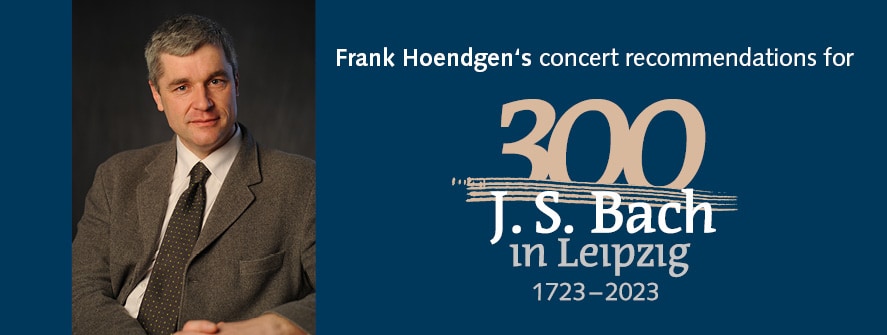
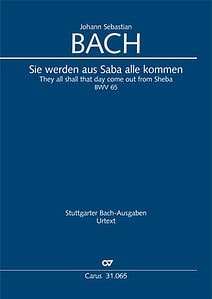
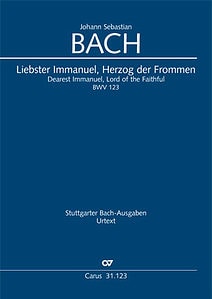
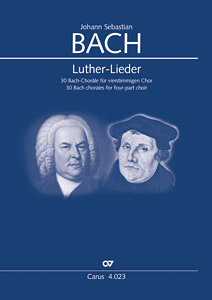
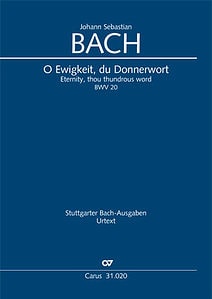
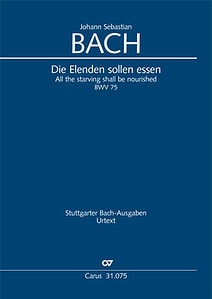
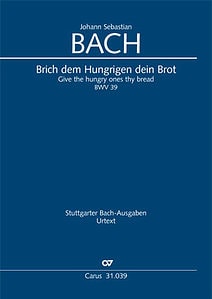
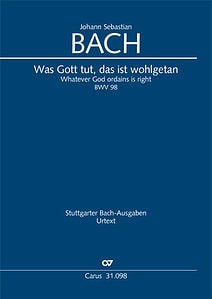
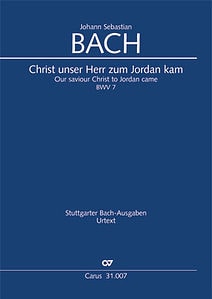
 (c) Arne Morgner, Oelsnitz/Vogtland, Germany
(c) Arne Morgner, Oelsnitz/Vogtland, Germany
Leave a Reply
Want to join the discussion?Feel free to contribute!